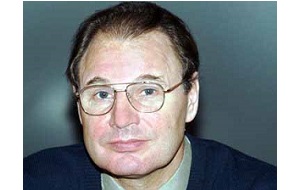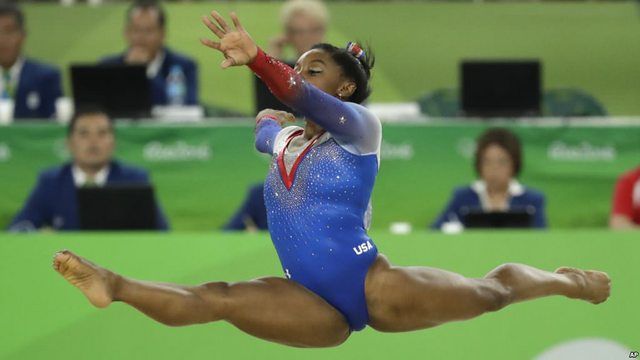Мондзолевский, Георгий Григорьевич. Георгий григорьевич мондзолевскии
Георгий Григорьевич Мондзолевский Википедия
| Георгий Григорьевич Мондзолевский | |||||||||||||||||||||||||||||||||||||||||
| мужской | |||||||||||||||||||||||||||||||||||||||||
| |||||||||||||||||||||||||||||||||||||||||
| 26 января 1934(1934-01-26)[1](84 года) | |||||||||||||||||||||||||||||||||||||||||
| |||||||||||||||||||||||||||||||||||||||||
| Награды и медали
| |||||||||||||||||||||||||||||||||||||||||
Георгий Григорьевич Мондзолевский (род. 26 января 1934 года, Орша, Витебская область) — советский волейболист, связующий, двукратный олимпийский чемпион (Токио-1964, Мехико-1968). Заслуженный мастер спорта СССР (1963). Награждён двумя орденами «Знак Почёта».
Содержание
- 1 Биография
- 2 Достижения
- 3 Примечания
- 4 Литература
- 5 Ссылки
Биография[ | код]
Выступал за одесские команды «Буревестник» и СКА (1951—1956), с 1958 года — за ЦСКА. В сборной СССР — в 1956—1964, 1967—1968 годах.
Окончил Одесский педагогический институт (1956), был доцентом Военно-инженерной академии им. В. В. Куйбышева. Работал старшим преподавателем в
ru-wiki.ru
 Опубликовать Опубликовать | скачать Реферат на тему: Георгий Мондзолевский Георгий Григорьевич Мондзолевский (род. 26 января 1934, Орша Витебской области) — советский волейболист, связующий, двукратный олимпийский чемпион (Токио-1964, Мехико-1968). Заслуженный мастер спорта СССР (1963). Награждён двумя орденами «Знак Почёта». Выступал за одесские команды «Буревестник» и СКА (1951—1956), с 1958 года — за ЦСКА. В сборной СССР — в 1956—1964, 1967—1968 годах. Окончил Одесский педагогический институт (1956), был доцентом Военно-инженерной академии им. В. В. Куйбышева. Работает старшим преподавателем в Московском горном институте. Достижения
Литература
Категории: Персоналии по алфавиту, Кавалеры ордена Знак Почёта, Волейболисты СССР, Родившиеся 26 января, Родившиеся в 1934 году, Заслуженные мастера спорта СССР, Родившиеся в Орше, Олимпийские чемпионы от СССР, Олимпийские чемпионы по волейболу, Чемпионы летних Олимпийских игр 1968 года, Волейболисты на летних Олимпийских играх 1968 года, Чемпионы Европы по волейболу, Чемпионы СССР по волейболу, Чемпионы мира по волейболу, Игроки ВК ЦСКА Москва, Чемпионы летних Олимпийских игр 1964 года, Волейболисты на летних Олимпийских играх 1964 года. Текст доступен по лицензии Creative Commons Attribution-ShareAlike. |
wreferat.baza-referat.ru
Мондзолевский, Георгий Григорьевич - WikiVisually
1. Союз Советских Социалистических Республик – The Soviet Union, officially the Union of Soviet Socialist Republics was a socialist state in Eurasia that existed from 1922 to 1991. It was nominally a union of national republics, but its government. The Soviet Union had its roots in the October Revolution of 1917 and this established the Russian Socialist Federative Soviet Republic and started the Russian Civil War between the revolutionary Reds and the counter-revolutionary Whites. In 1922, the communists were victorious, forming the Soviet Union with the unification of the Russian, Transcaucasian, Ukrainian, following Lenins death in 1924, a collective leadership and a brief power struggle, Joseph Stalin came to power in the mid-1920s. Stalin suppressed all opposition to his rule, committed the state ideology to Marxism–Leninism. As a result, the country underwent a period of rapid industrialization and collectivization which laid the foundation for its victory in World War II and postwar dominance of Eastern Europe. Shortly before World War II, Stalin signed the Molotov–Ribbentrop Pact agreeing to non-aggression with Nazi Germany, in June 1941, the Germans invaded the Soviet Union, opening the largest and bloodiest theater of war in history. Soviet war casualties accounted for the highest proportion of the conflict in the effort of acquiring the upper hand over Axis forces at battles such as Stalingrad. Soviet forces eventually captured Berlin in 1945, the territory overtaken by the Red Army became satellite states of the Eastern Bloc. The Cold War emerged by 1947 as the Soviet bloc confronted the Western states that united in the North Atlantic Treaty Organization in 1949. Following Stalins death in 1953, a period of political and economic liberalization, known as de-Stalinization and Khrushchevs Thaw, the country developed rapidly, as millions of peasants were moved into industrialized cities. The USSR took a lead in the Space Race with Sputnik 1, the first ever satellite, and Vostok 1. In the 1970s, there was a brief détente of relations with the United States, the war drained economic resources and was matched by an escalation of American military aid to Mujahideen fighters. In the mid-1980s, the last Soviet leader, Mikhail Gorbachev, sought to reform and liberalize the economy through his policies of glasnost. The goal was to preserve the Communist Party while reversing the economic stagnation, the Cold War ended during his tenure, and in 1989 Soviet satellite countries in Eastern Europe overthrew their respective communist regimes. This led to the rise of strong nationalist and separatist movements inside the USSR as well, in August 1991, a coup détat was attempted by Communist Party hardliners. It failed, with Russian President Boris Yeltsin playing a role in facing down the coup. On 25 December 1991, Gorbachev resigned and the twelve constituent republics emerged from the dissolution of the Soviet Union as independent post-Soviet states
2. Орша – Orsha is a city in Belarus in Vitebsk Region on the fork of the Dnieper and Arshytsa rivers. Orsha was first mentioned in 1067 as Rsha, making it one of the oldest towns in Belarus, the town was named after the river, which was originally also named Rsha, probably from a Baltic root *rus slowly flowing. In 1320, Orsha became a part of the Grand Duchy of Lithuania, in 1398-1407, the Orsha castle was built. On September 8,1514 the famous Battle of Orsha occurred, the Muscovites suffered significant defeat, however, the victorious Grand Duchy of Lithuania did not fully avail its victory. In 1555, Mikołaj the Black Radziwiłł founded a Calvinist order in Orsha, from the sixteenth to eighteenth centuries Orsha was a notable religious centre, with dozens of Orthodox, Protestant and Catholic churches and orders. The town was home to a large Jewish population. Orsha was granted Magdeburg Rights in 1620, in 1630, S. Sobal opened the first printing house at the Kuciejna monastery, which became a well-known centre of Cyrillic-alphabet publishing. The town was damaged during the Russo-Polish War, which was a disaster for Grand Duchy of Lithuania, during the First Polish partition the city was taken over by the Russian Empire in 1772, and became part of the Mogilyov Gubernia. Under Russian rule, it was stripped of its Magdeburg Rights in 1776 and went into cultural, the population dropped sharply to just about 2,000 inhabitants. The city symbol in 1781 was changed to one which included the symbol of the Russian empire, in 1812, the city was badly burned during Napoleons invasion. At the time of Orsha had been taken control of French troops. According to the census of 1897, on a population of 13,161. During the First World War, the city was occupied by German forces in February–October 1918, from February 2,1919, Orsha became a part of Homyel region of Soviet Russia. After the formation of the Soviet Union, it was transferred to the Byelorussian SSR in 1924, the population before World War II was about 37,000. The city was occupied by Germany on July 16,1941, the occupiers founded several concentration camps in the city, where an estimated 19,000 people were killed. Orsha was one of the centers of the Belarusian general strike in April 1991, hundreds of thousands of coal miners had been on strike across the Soviet Union since March 1. On April 3, the day after the government had imposed consumer price increases. Virtually the entire force of that city followed on the 4th
3. Белоруссия – Its capital and most populous city is Minsk. Over 40% of its 207,600 square kilometres is forested and its strongest economic sectors are service industries and manufacturing. In the aftermath of the 1917 Russian Revolution, Belarus declared independence as the Belarusian Peoples Republic, the Socialist Soviet Republic of Byelorussia became a founding constituent republic of the Soviet Union in 1922 and was renamed as the Byelorussian Soviet Socialist Republic. Belarus lost almost half of its territory to Poland after the Polish–Soviet War of 1919–1921, during WWII, military operations devastated Belarus, which lost about a third of its population and more than half of its economic resources. The republic was redeveloped in the post-war years, in 1945 the Byelorussian SSR became a founding member of the United Nations, along with the Soviet Union and the Ukrainian SSR. The parliament of the declared the sovereignty of Belarus on 27 July 1990. Alexander Lukashenko has served as the president since 1994. Belarus has been labeled Europes last dictatorship by some Western journalists, Lukashenko continued a number of Soviet-era policies, such as state ownership of large sections of the economy. Though not directly espousing communism like the five remaining communist countries of China, Cuba, Laos, Vietnam and North Korea, in 2000 Belarus and Russia signed a treaty for greater cooperation, with some hints of forming a Union State. Over 70% of Belaruss population of 9.49 million resides in urban areas, more than 80% of the population is ethnic Belarusian, with sizable minorities of Russians, Poles and Ukrainians. Since a referendum in 1995, the country has had two official languages, Belarusian and Russian, the Constitution of Belarus does not declare any official religion, although the primary religion in the country is Eastern Orthodox Christianity. Belarus is the only European country to retain capital punishment in both law and practice, the name Belarus is closely related with the term Belaya Rus, i. e. White Rus. There are several claims to the origin of the name White Rus, an alternate explanation for the name comments on the white clothing worn by the local Slavic population. A third theory suggests that the old Rus lands that were not conquered by the Tatars had been referred to as white, other sources claim that, before 1267, the land not conquered by the Mongols was considered White Rus. The name Rus is often conflated with its Latin forms Russia and Ruthenia, in some languages, including German and Dutch, the country is generally called White Russia to this day. The Latin term Alba Russia was used again by Pope Pius VI in 1783 to recognize the Society of Jesus there, exclaiming Approbo Societatem Jesu in Alba Russia degentem, approbo, approbo. The first known use of White Russia to refer to Belarus was in the century by Englishman Sir Jerome Horsey. During the 17th century, the Russian tsars used White Rus to describe the lands added from the Grand Duchy of Lithuania
4. Летние Олимпийские игры – The Summer Olympic Games or the Games of the Olympiad, first held in 1896, is an international multi-sport event that is hosted by a different city every four years. The most recent Olympics were held in Rio de Janeiro, Brazil, the International Olympic Committee organizes the games and oversees the host citys preparations. In each Olympic event, gold medals are awarded for first place, silver medals are awarded for second place, and bronze medals are awarded for third, the Winter Olympic Games were created due to the success of the Summer Olympics. The Olympics have increased in scope from a 42-event competition with fewer than 250 male competitors from 14 nations in 1896 to 302 events with 10,768 competitors from 204 nations in 2012, eighteen countries have hosted the Summer Olympics. The United States has hosted four Summer Olympics, more than any other nation, four cities have hosted two Summer Olympics, Athens, Paris, Los Angeles, and Tokyo. Tokyo is the first city outside of the Western world to host the Summer Olympics multiple times, asia has hosted the Summer Olympics four times in Japan, South Korea, and China. The only Summer Olympics held in the Southern Hemisphere have been in Australia, the 2016 Games are the first Summer Olympics to be held in South America and the first to be held during the local winter season. Africa has yet to host a Summer Olympics, only five countries—Greece, Australia, France, Great Britain, and Switzerland—have been represented at every Summer Olympic Games. The only country to have won at least one medal at every Summer Olympic Games is Great Britain. The United States leads the medal table. Qualification rules for each of the Olympic sports are set by the International Sports Federations that governs that sports international competition, for individual sports, competitors typically qualify through attaining a certain place in a major international event or on the IFs ranking list. There is a rule that maximum three individual athletes may represent each nation per competition. Nations most often qualify teams for team sports through continental qualifying tournaments, each nation may be represented by no more than one team per competition a team is two people in some sports. The United States has hosted four Summer Olympic Games, more than any other nation, the United Kingdom hosted the 2012 Olympic Games, its third Summer Olympic Games, in its capital London, making London the first city to host the Summer Olympic Games three times. Australia, France, Germany, Greece, and Japan have all hosted the Summer Olympic Games twice. Other countries that have hosted the Summer Olympics are Belgium, Brazil, China, Canada, Finland, Italy, Mexico, Netherlands, South Korea, Spain, the Soviet Union, asia has hosted the Summer Olympics three times and will host again in 2020. In 2016, Rio de Janeiro hosted the first Summer Olympics in South America, three cities have hosted two Summer Olympic Games, Los Angeles, Paris, and Athens. Stockholm has hosted events at two Summer Olympic Games, having hosted the games in 1912 and the events at the 1956 Summer Olympics—which they are usually listed as jointly hosting
5. Летние Олимпийские игры 1964 – The 1964 Summer Olympics, officially known as the Games of the XVIII Olympiad, was an international multi-sport event held in Tokyo, Japan, from October 10 to 24,1964. The 1964 Summer Games were the first Olympics held in Asia, Tokyo was chosen as the host city during the 55th IOC Session in West Germany, on May 26,1959. These games were also the first to be telecast internationally without the need for tapes to be overseas, as they had been for the 1960 Olympics four years earlier. The games were telecast to the United States using Syncom 3, the first geostationary communication satellite and these were also the first Olympic Games to have color telecasts, albeit partially. Certain events like the sumo wrestling and judo matches, sports huge in Japan, were tried out using Toshibas new color transmission system, history surrounding the 1964 Olympics was chronicled in the 1965 documentary film Tokyo Olympiad, directed by Kon Ichikawa. The games were scheduled for mid-October to avoid the citys midsummer heat and humidity, the previous Olympics in Rome in 1960 started in late August and experienced hot weather. The following games in 1968 in Mexico City also began in October, the 1964 Olympics were also the last to use a traditional cinder track for the track events. A smooth synthetic all-weather track was used for the first time at the 1968 Olympics, the 2020 Summer Olympics will be held in Tokyo. Tokyo won the rights to the Games on May 26,1959, at the 55th IOC Session in Munich, West Germany, over bids from Detroit, Brussels and Vienna. Toronto was an early bidder again in 1964 after the attempt for 1960. Yūji Koseki composed the song of the opening ceremony. Yoshinori Sakai, who lit the Olympic Flame, was born in Hiroshima on August 6,1945, kumi-daiko was first exhibited to a world-wide audience at the Festival of Arts presentation. Judo and womens volleyball, both sports in Japan, were introduced to the Olympics. Japan won gold medals in three events, but Dutchman Anton Geesink won the Open category. The Japanese womens volleyball won the gold medal, with the final being broadcast live. The womens pentathlon was introduced to the athletics events, soviet gymnast Larisa Latynina won two gold medals, a silver medal and two bronze medals. She held the record for most Olympic medals at 18 which stood until broken by American swimmer Michael Phelps in 2012, czechoslovakian gymnast Věra Čáslavská wins 3 gold medals, including the individual all-around competition, crowning her the new queen over the reigning champion Larisa Latynina. Australian swimmer Dawn Fraser won the 100 m freestyle event for the time in a row
wikivisually.com





